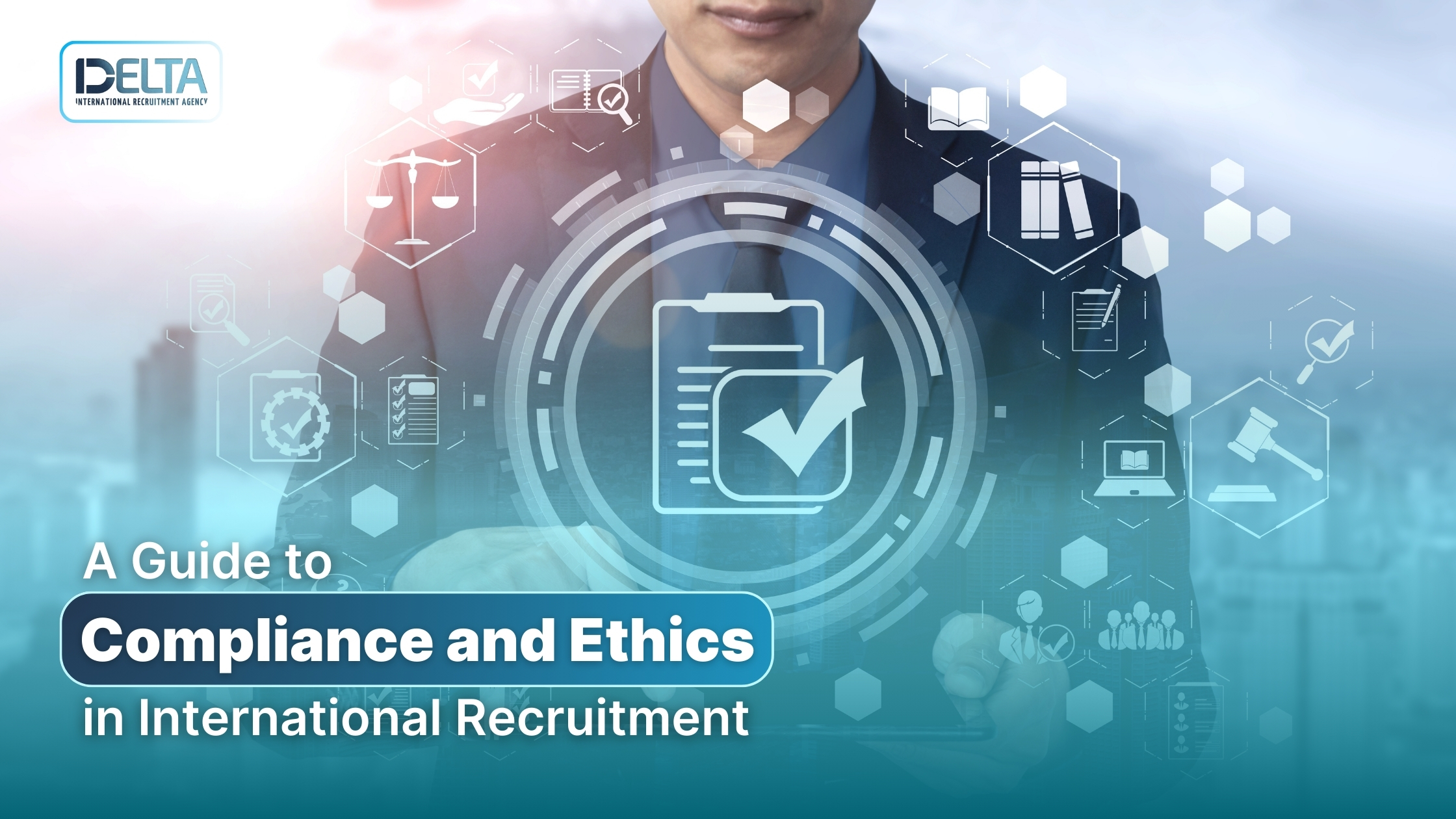In today's globalized job market, compliance to international recruitment and the ethics of international recruitment have become critical topics for businesses looking to attract top talent from around the world. How can organizations ensure they are not only compliant with local laws but also uphold ethical standards in their hiring practices? This guide explores the essential aspects of compliance and ethics in international recruitment, offering insights and best practices to help organizations navigate this complex landscape.
Understanding Compliance in International Recruitment
Compliance in international recruitment involves adhering to various local labor laws, immigration policies, and data protection regulations. Organizations must be aware of the legal frameworks that govern employment in different countries to avoid potential pitfalls. Key compliance considerations include:
- Local Labor Laws: Understanding minimum wage, working hours, and anti-discrimination laws is crucial. Violations can lead to severe penalties and damage a company's reputation.
- Immigration Policies: Securing the necessary work visas and permits is essential for foreign employees. This requires timely documentation and proof that no suitable local candidates were available.
- Data Protection Regulations: Compliance with laws such as GDPR is vital for safeguarding candidates' personal information.
By prioritizing these compliance aspects, organizations can mitigate risks associated with international hiring.

Source: adevait.com
The Importance of Ethical Recruitment
Ethical recruitment goes beyond mere compliance, it embodies fairness, transparency, and respect for candidates. Ethical practices ensure that all candidates are treated equitably and that their rights are protected throughout the hiring process. This includes:
- Transparent Job Descriptions: Clearly outline job responsibilities, requirements, and conditions of employment to avoid misleading candidates.
- Fair Assessment Processes: Implement unbiased evaluation methods to ensure that hiring decisions are based solely on qualifications and merit.
- Respect for Cultural Differences: Being culturally sensitive during recruitment helps build trust and respect with international candidates.
Organizations that prioritize ethical recruitment not only enhance their reputation but also foster a diverse and inclusive workplace.
List of Best Practices for Compliance and Ethics
To effectively manage compliance and uphold ethical standards in international recruitment, organizations should consider the following best practices:
- Stay Informed: Regularly update knowledge on local laws and regulations impacting recruitment processes.
- Develop Comprehensive Policies: Create clear recruitment policies that outline compliance measures, anti-discrimination protocols, and data protection guidelines.
- Conduct Background Checks: Ensure thorough vetting of candidates while adhering to local laws regarding privacy and data protection.
- Maintain Documentation: Keep accurate records of the recruitment process to demonstrate compliance during audits or legal inquiries.
- Leverage Technology: Utilize Applicant Tracking Systems (ATS) to streamline recruitment processes while ensuring compliance with legal requirements.
- Engage Legal Counsel: Consult legal experts to navigate complex regulations and ensure adherence to best practices tailored to your organization’s needs.
By implementing these best practices, organizations can enhance their compliance efforts while promoting ethical recruitment standards.
Partnering with Delta International Recruitment Consultants
Collaborating with experienced international recruitment consultants can significantly ease the complexities of navigating global hiring. Delta International Recruitment Consultants stands out as a top choice in this arena. With years of experience in the field, Delta offers comprehensive services that ensure compliance with international regulations while maintaining high ethical standards. Their commitment to transparency and fairness sets them apart from other agencies.
Delta’s team is well-versed in local labor laws across various countries, making them an invaluable resource for organizations looking to expand their workforce globally. By partnering with Delta, companies can confidently navigate the complexities of international hiring while upholding their commitment to ethical practices.
Conclusion
In conclusion, navigating the realms of compliance to international recruitment and the ethics of international recruitment is essential for organizations aiming for success in a global marketplace. By understanding local regulations, embracing ethical practices, implementing best practices, and partnering with experienced consultants like Delta International Recruitment Consultants, businesses can effectively recruit top talent while maintaining high standards of legal integrity and ethical responsibility.
By prioritizing these principles, organizations not only enhance their reputation but also contribute positively to the global workforce landscape.
Tips for Employers: Overseas Recruitment Guides




